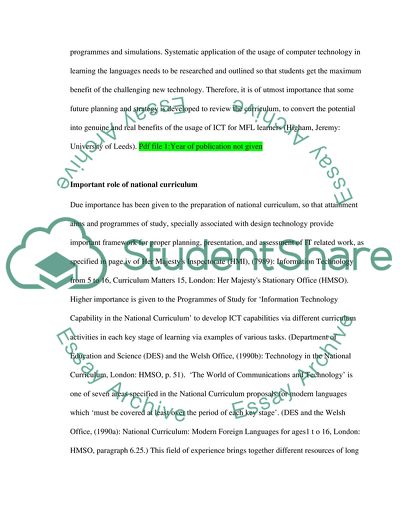Cite this document
(ICT and Teaching and Learning of Modern Foreign Languages Assignment, n.d.)
ICT and Teaching and Learning of Modern Foreign Languages Assignment. https://studentshare.org/education/1707238-what-impact-does-the-use-of-ict-have-on-the-teaching-and-learning-of-modern-foreign-languages-at-a-secondary-level
ICT and Teaching and Learning of Modern Foreign Languages Assignment. https://studentshare.org/education/1707238-what-impact-does-the-use-of-ict-have-on-the-teaching-and-learning-of-modern-foreign-languages-at-a-secondary-level
(ICT and Teaching and Learning of Modern Foreign Languages Assignment)
ICT and Teaching and Learning of Modern Foreign Languages Assignment. https://studentshare.org/education/1707238-what-impact-does-the-use-of-ict-have-on-the-teaching-and-learning-of-modern-foreign-languages-at-a-secondary-level.
ICT and Teaching and Learning of Modern Foreign Languages Assignment. https://studentshare.org/education/1707238-what-impact-does-the-use-of-ict-have-on-the-teaching-and-learning-of-modern-foreign-languages-at-a-secondary-level.
“ICT and Teaching and Learning of Modern Foreign Languages Assignment”. https://studentshare.org/education/1707238-what-impact-does-the-use-of-ict-have-on-the-teaching-and-learning-of-modern-foreign-languages-at-a-secondary-level.


